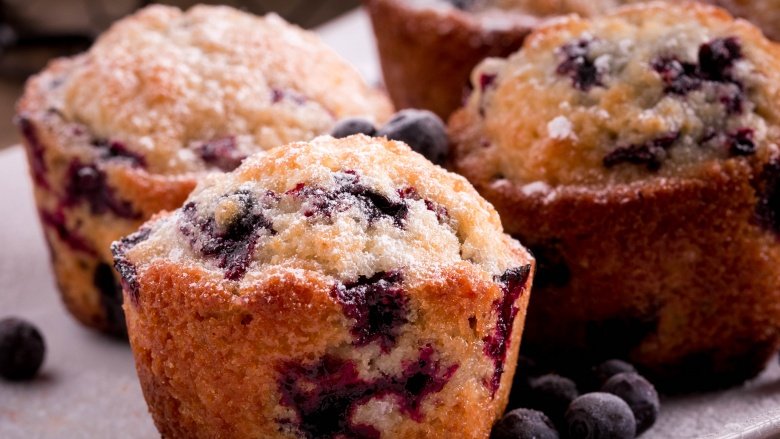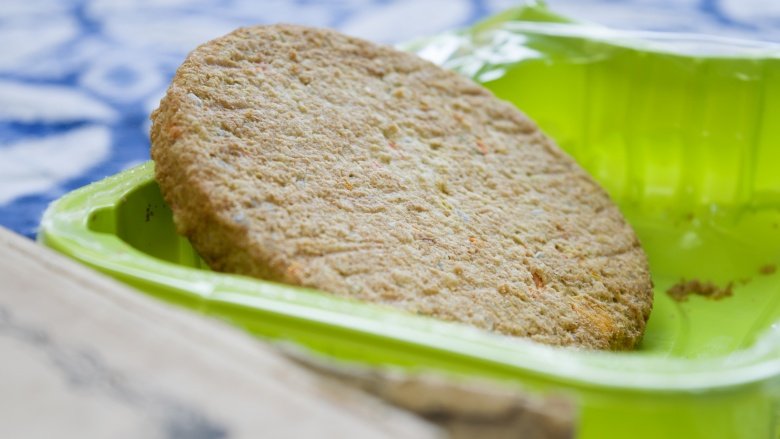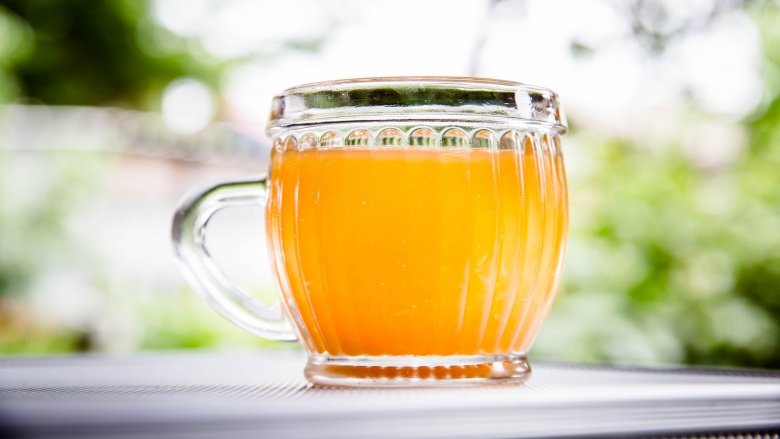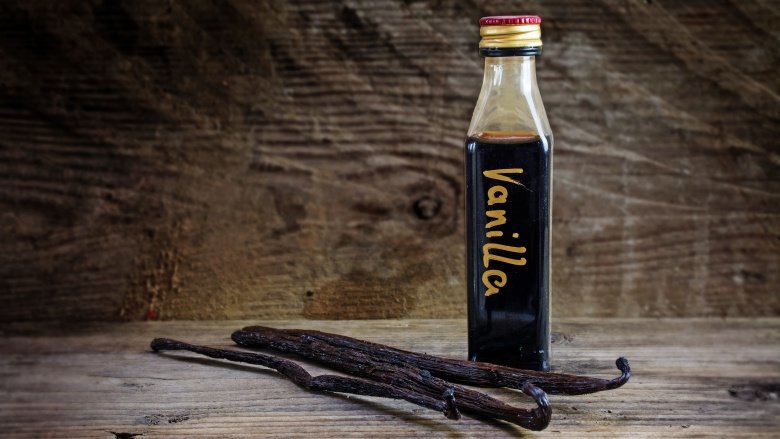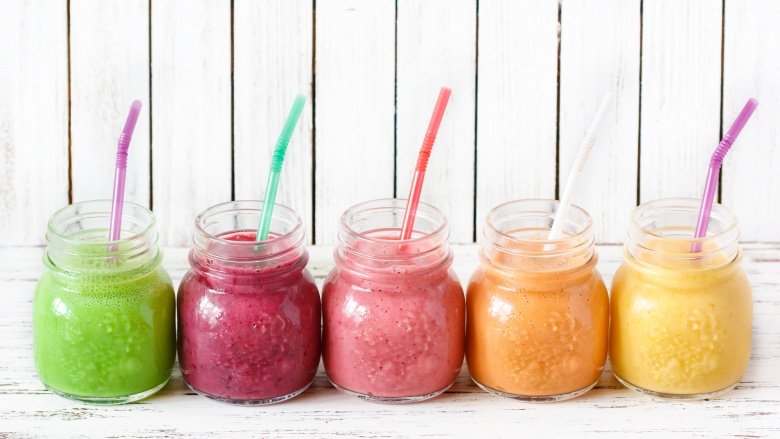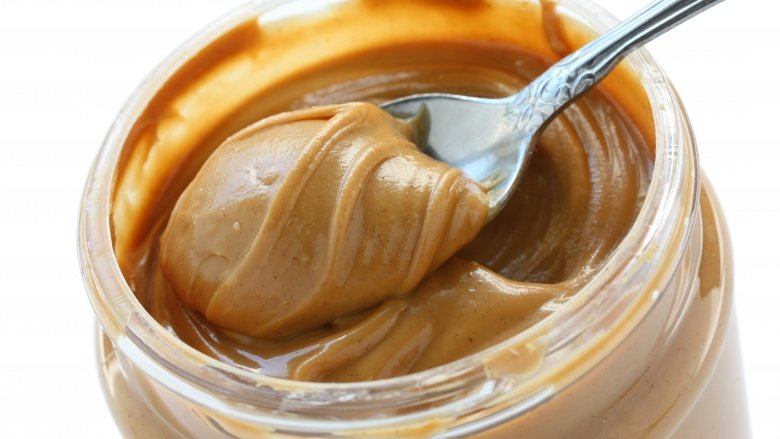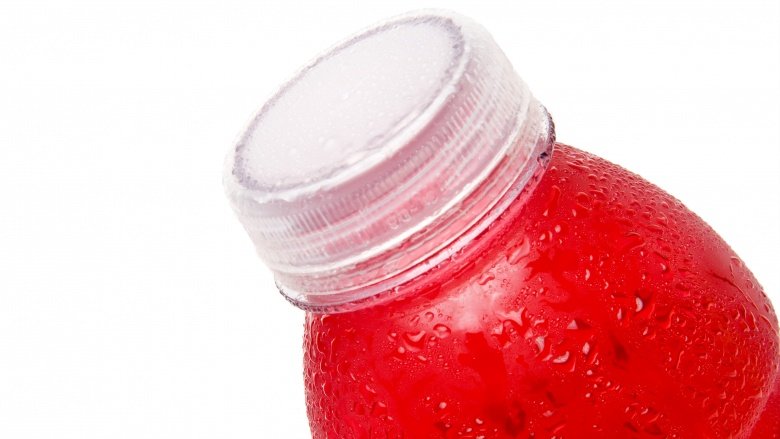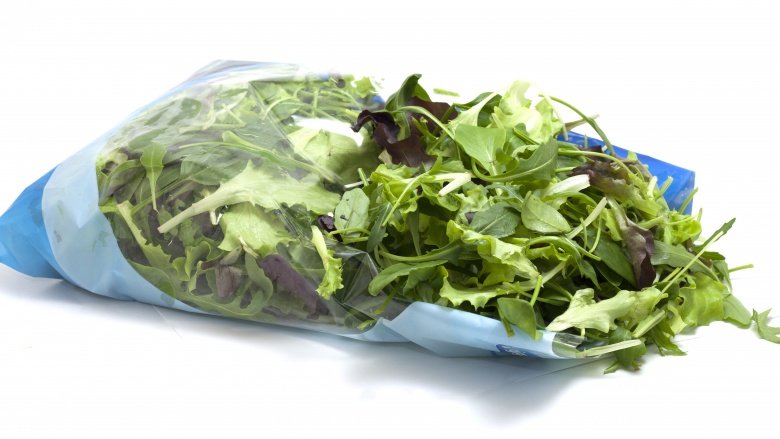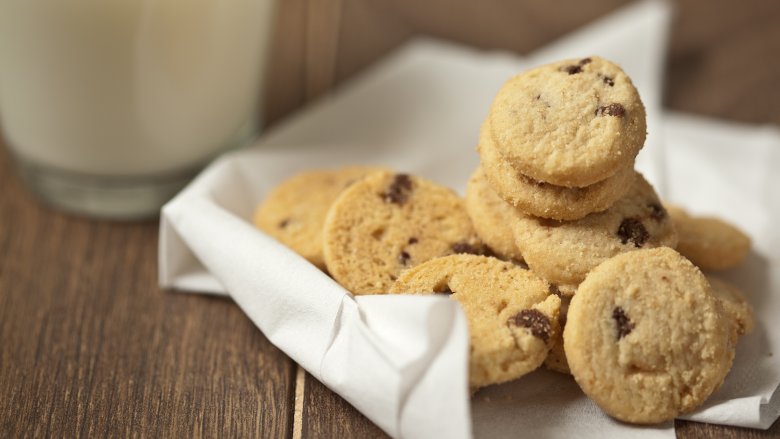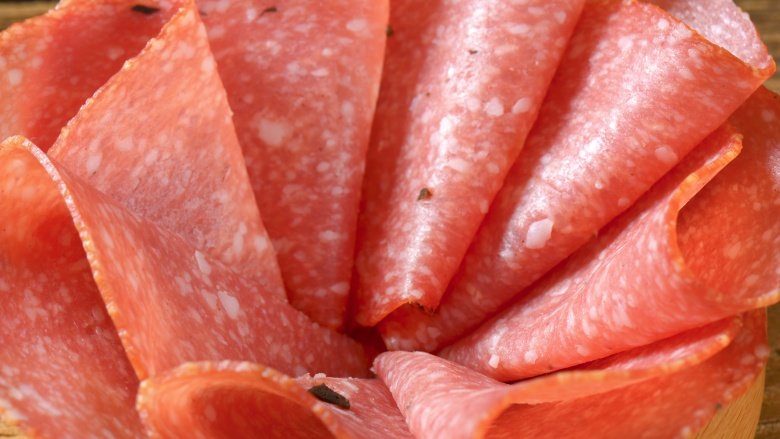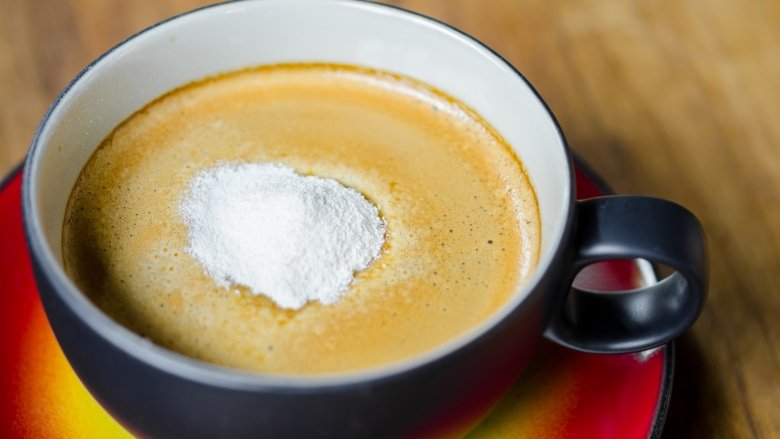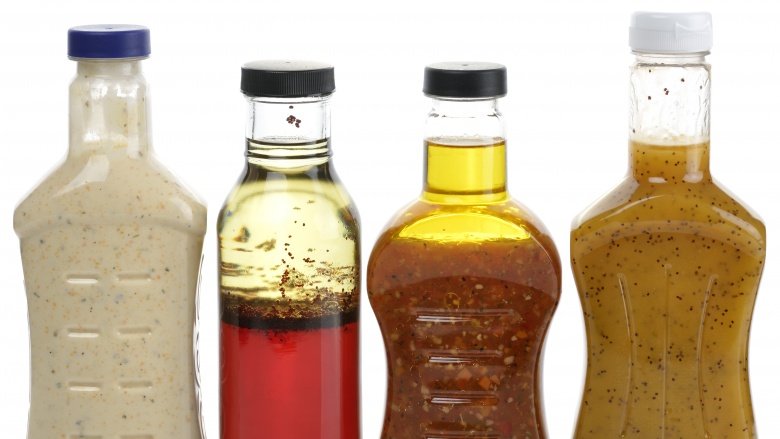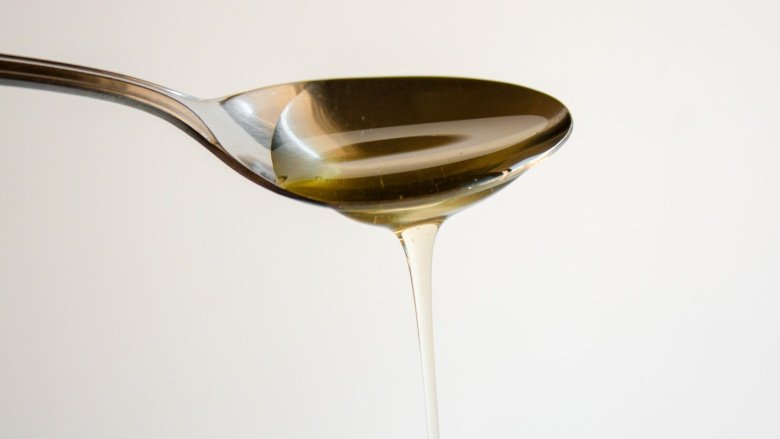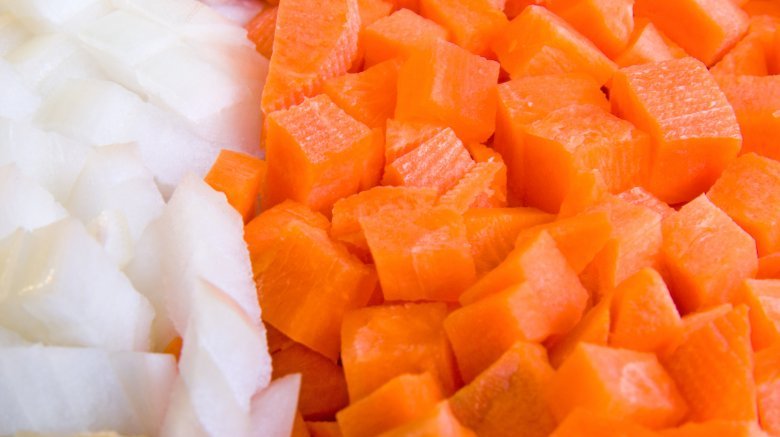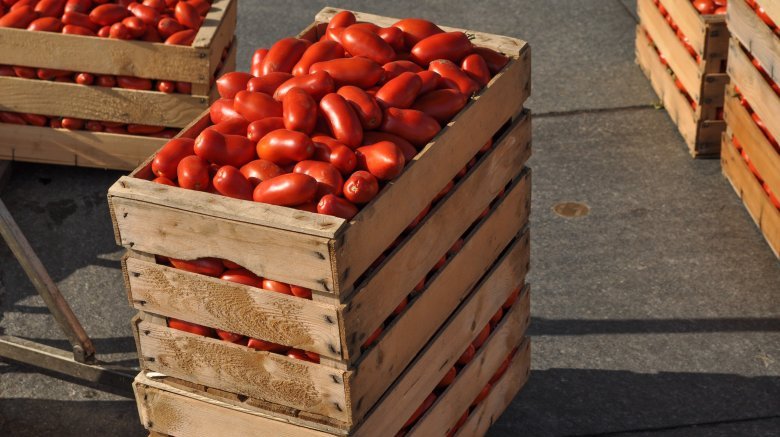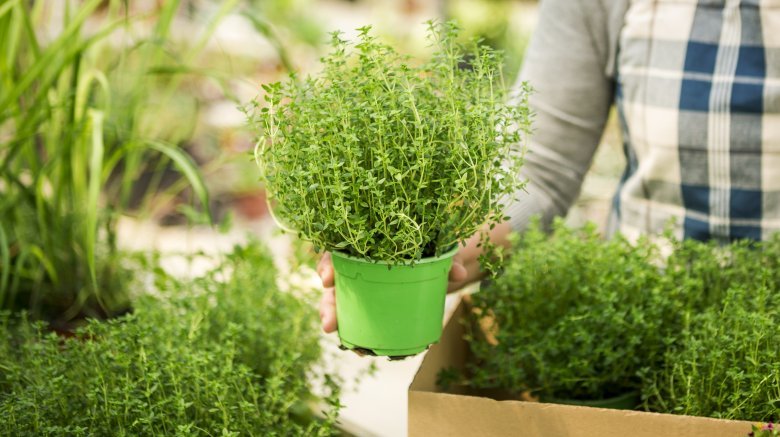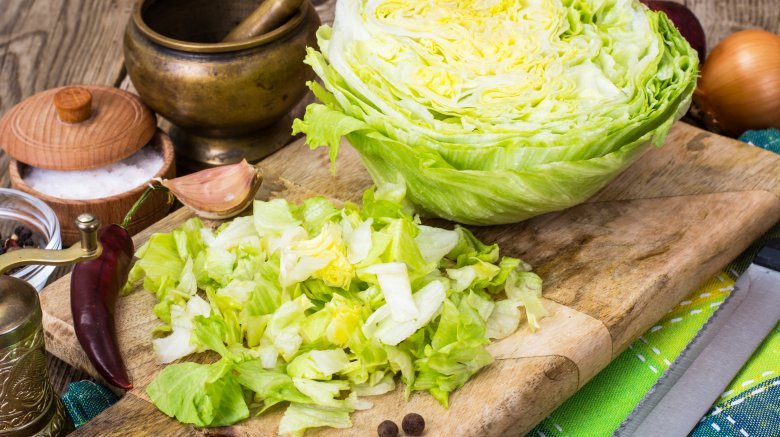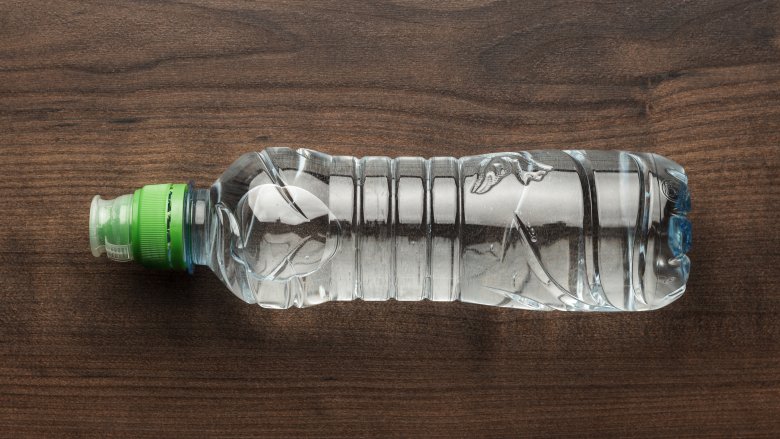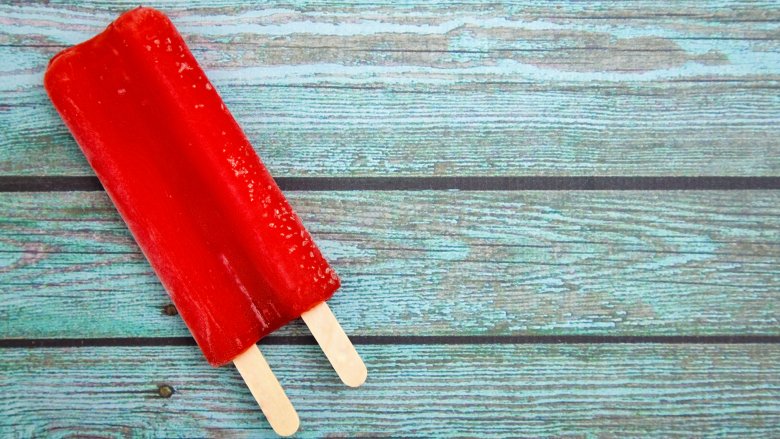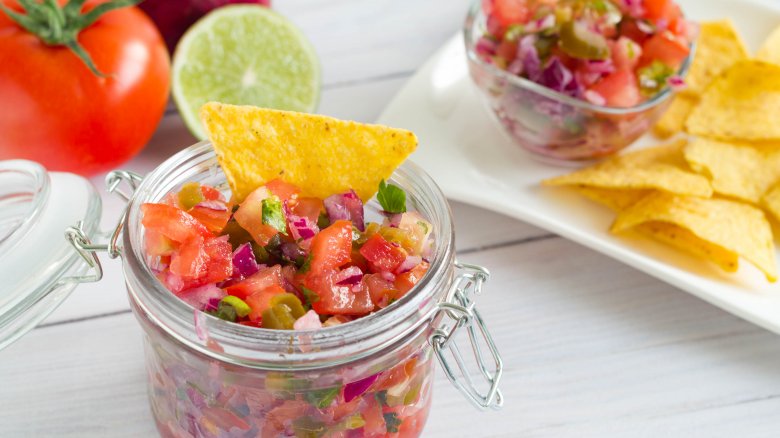Foods To Avoid Buying At All Costs
Heading to the grocery store is usually not an easy task — even for the super experienced grocery getter. It's tough to keep your budget in check while still making sure you're getting the best, most nutritious options for your family. There are plenty of things out there that can be misleading — masquerading as healthy options or even really good deals when they're actually nothing like they appear. And believe it or not, reading the labels doesn't always tell you everything you need to know. Unfortunately, some of those terribly misleading foods might be things you've been tossing into your cart without too much thought for years — some of them might even be family favorites (we're sorry in advance, if that's the case!).
Here are some popular foods that are not at all what you probably think they are. Trust us, you can't walk away from these foods fast enough.
Almost anything blueberry-flavored
But, we love blueberries! Don't tell us there's something terrible about blueberries! There isn't, and if you love the taste of blueberries, you should stick to the real thing. It's when you get into foods that claim to be blueberry-flavored, or contain pieces of "real blueberry," that you're getting into uncertain territory.
Most of the so-called "blueberries" you find in goods like muffin mixes, cereals, yogurts, granola bars and pancake mixes aren't dried blueberries at all. They're made with other ingredients on the list, like red and blue dyes, sugar and oils. It's a loophole that allows companies to market their products as including blueberries, while what they really contain is little pieces of manufactured non-blueberries they've given names like "blueberry crunchlets." Technically, they're in compliance with full disclosure laws — but in reality, it's a misleading label. Instead, just pick up some real blueberries from the produce section. Add them to your yogurt or cereal, or make some blueberry muffins from scratch (and try this recipe, you won't regret it!). That way, you know that you're getting the real thing.
Pre-packaged veggie burgers
Going meatless is a popular life choice these days, but picking up a package of pre-made veggie burgers isn't the best idea. So what makes them so bad? Some vegetable burgers are packed with sodium. Others are full of processed ingredients, and some even include a chemical considered hazardous by the EPA.
It's called hexane, and it's created by the process that turns soybeans into soybean oil. The EPA lists it as air pollution, and if your veggie burger has soy in it, it's likely that there's some hexane in it, too. It's known for causing headaches and vertigo in factory employees exposed to it, and since most of it evaporates, it's never been fully investigated by the FDA. Petitions to change that continue to circulate, and in the meantime? Make your own veggie burgers.
Orange juice
First blueberries, now orange juice? This might ruin your breakfast, but it might also convince you that squeezing your own orange juice is the way to go, even if the container boasts that it's 100 percent fresh-squeezed.
Orange juice is so ingrained in our breakfast routines that packaging enough of it in such a way that uniform taste is ensured... that's tricky. It's led to bottling plans that give a whole new meaning to "fresh" orange juice. Once oranges are picked, they're processed, pasteurized, and stored in massive holding tanks for up to eight months, depending on the company. That processing can include everything from adding a huge amount of sugar, to separating the basic components of the juice only to mix them together again in a way that helps make sure every carton of juice tastes exactly the same — and in this case, it probably tastes like something you don't want any more.
Vanilla extract
Vanilla might be the boring old stand-by favorite when it comes to flavors, but it's also insanely expensive. The complicated process that needs to happen to grow real vanilla beans means it's one of the most expensive per-unit foods in your grocery store, and the price-per point of vanilla beans means that extract (the real stuff, not the imitation flavor) can be mind-bogglingly expensive. Sure, it goes a long way, but there's also no reason to buy it.
First, a bit about what's in imitation vanilla. That's made from a compound called vanillin, and chemically, it's the exact equivalent to the stuff that makes real vanilla, well, vanilla. Vanillin is a lot cheaper, though, and that's because it's a byproduct that can be extracted from things like coal and wood. Who wants that in their cookies?
Sugar-heavy smoothies
This is another pitfall you can avoid, but it might take a lot of label-reading. Pre-made, bottled smoothies might seem like a great option for a healthy breakfast or snack, but many include so much sugar that no number of good intentions will make up for it. According to the British Dietetic Association there's another downfall, too. Some smoothie manufacturers rely on a process called juicing to create the base for their smoothies. Not only does that remove a lot of the pulp and fiber, but that, in turn, also removes a lot of the nutrients and benefits you might think that you're getting.
Reduced-fat peanut butter
How many people see the "reduced-fat" version of something and assume that it's going to be healthier? Unfortunately that's not always the case, and it's definitely not the case with peanut butter.
Take away some of the fat of peanut butter, and you're left with a base that needs something more in order to get an acceptable taste and texture. In many cases, that means companies add things like extra sugar, corn syrup, molasses and a variety of starches. Extra sugar is never a good thing, especially when you consider what kind of fat is being replaced. Peanut butter is filled with monounsaturated fats, and that's the kind your heart needs to keep it healthy.
Vitaminwater
Healthy is trendy, there's no denying that. Vitaminwater might look like Coca-Cola's attempt to jump on the healthy bandwagon, but studies into just how healthy it actually is have found that it's barely better than Coca-Cola's more mainstream carbonated beverages... and it's one you should skip.
Vitaminwater touts its vitamin content, but according to professors at New York University, most Americans aren't vitamin-deficient in the first place. And even if they were, Vitaminwater wouldn't be helping much anyway. In the case of vitamins like A, D, E and K, they can only be absorbed by the body through dietary fats. That means meals, not drinks, and especially not drinks that contain several tablespoons of crystalline fructose. The realization that Vitaminwater wasn't nearly as healthy as it was claiming even led to a lawsuit by the Center for Science in the Public Interest, who lambasted Coca-Cola for false claims and using health buzzwords on a drink that wasn't much better than the sugary, carbonated drinks they've always been known for.
Bagged salads
Grabbing a bag of pre-made salad might seem like a good idea, but this one's a horrible choice for a whole bunch of reasons. Let's start with a risk that you probably don't even think of in conjunction with salads: salmonella.
According to researchers at the University of Leicester, the broken leaves you find in your bagged salad aren't just convenient, they're actually raising the chances of salmonella developing in the bag by a whopping 2,400-fold. Because of the way salmonella attaches to the leaves, washing it isn't even going to guarantee your salad is salmonella-free, and the chances of it making you sick skyrocket even higher if you leave an opened bag in the fridge overnight. Food experts from the University of Aberdeen found a huge amount of dangerous bacteria present on the leaves in bagged salads.
Snack packs
Admittedly, it's a tempting idea that includes some built-in self control, but snack packs aren't the incredible weight loss aid they're often touted as. According to Dr. David Ludwig from the Children's Hospital Boston (via ABC News), those packs might have the exact opposite of the desired effect. Because they're advertised as being healthier than they are, and we believe we're being good, we also think we can eat more. They also looked at pricing, and found 100-calorie snack packs were more expensive as larger packs. Companies justify the price hike by saying it costs more to portion and package snacks for you, but it's still pretty shocking if you're watching your pennies and cents (and who isn't).
Give these a miss every time. Opt for larger sizes, and if you're concerned about mindless eating, portion things out into another bowl or a plastic baggie for lunches. That extra five minutes will save you in the long run.
Salami (and other highly processed meats)
The world loves sandwiches, and there's nothing wrong with that. There's plenty of healthy (and responsible) options out there, but unfortunately, salami isn't one of them. First off, it has a fat content that's off the charts, with a single slice of salami containing around 7 grams of fat. That's around 11 percent of your daily dose of fat, in a single slice! It's also high in calories, sodium, trans fat, and it's even got what's considered a moderate amount of cholesterol. That all makes for a lot of bad stuff with few redeeming factors, aside from the fact that it tastes delicious.
Non-dairy, powdered coffee creamer
Coffee is amazing, and in no way, shape or form should you ever have to go without it. (You might lose orange juice and morning blueberries, but you should never be asked to give up coffee.) What you should leave behind at the grocery store, though, is the non-dairy, powdered coffee creamer that's so handy to keep around for using in a pinch.
The powered version of non-dairy creamer usually contains a high amount of trans fat, and that's the kind of fat you want to avoid at all costs. Check the label of your favorite non-dairy creamer. Don't see it listed? It might not need to be, as the law says if there's less than half a gram of trans fat per serving, it doesn't need to be on the label. Sneaky? Absolutely. That allows trans fat to fly under the radar on some types of powdered creamer, simply because a serving size is so small. Have a couple cups of coffee every day and a couple scoops of creamer, and that's going to add up fast.
They're also filled with corn syrups and vegetable oils that are usually made from partially hydrogenated oils, to help extend shelf life. But they're so bad that they're going to be banned in the US completely, starting in 2018. In the meantime, give that coffee creamer a miss and opt for a dairy option, or just drink your coffee black.
Salad dressing
There are a ton of horrible things in store-bought salad dressing. If you happened to miss this piece on what's really in your salad dressing, check it out. It gives a run-down on everything that you're pouring on your salads, and whether you prefer ranch or Russian, it's pretty dismal. Next time you're in the grocery store, take a look at the nutrition labels on some of your favorite dressings, and it'll definitely make you think twice about what you're putting on that hopefully healthy salad.
Fat-free dressing might look like a better option, but there's a major problem with them, too. If you're eating that salad because of the nutritional value inherent in the veggies you're including, fat-free dressing might be only making you miss out on all the good stuff you think you're getting. When researchers from Purdue University looked at how much our bodies absorb from salads dressed with toppings that had either 3, 8, or 20 grams of fat, they found that the fat-free dressings inhibited the body's ability to absorb nutrients. That's because some of the nutrients depend on the presence of fat for absorption into the bloodstream, and without that fat, you're sabotaging yourself. Instead, skip this entire aisle and make your own. You'll appreciate it!
Agave nectar
In today's health-conscious world, sugar is the bad guy. If you're looking for alternatives, you've probably come across agave nectar, but it's not all it's cracked up to be. Part of the problem with agave nectar is that it has a high fructose content, and that's exactly what you're trying to get away from when you skip sugar. That's the stuff that converts into fat quickly and easily, which, of course, is bad. Since agave nectar is made from the agave plant, that means most of it is imported into the US from Mexico. The FDA has taken issue with some of the shipments that have made their way north of the border, based mostly on Mexico's use of pesticides. While there's no sweetener that's perfect, this one's new enough that the jury's still out.
Pre-cut vegetables and fruits
Everyone leads busy lives, and it's no secret we like to cut corners wherever we can. But picking up pre-cut vegetables and ready-to-eat fruits isn't the way to make your life easier. What you're saving in minutes, you're losing in dollars, and over time, it adds up.
ShopSmart (via CBS News) looked at the price markups on some of the most common purchases and found onions were one of the worst deals. When compared to whole onions, pre-cut ones were marked up a whopping 392 percent. Sure, onions make you cry, but is it really worth all that extra cash?
And onions aren't the only place you're throwing your money away. Vegetables like kale can also come with a hefty price mark-up of more than 300 percent, single potatoes are double the price of bagged ones, and you're paying about 200 percent more if you want the store to pre-cut your green beans. Instead, buy raw, fresh ingredients and invest the extra few minutes of prep time — your wallet will thank you.
Out-of-season tomatoes
Barry Estabrook is the author of Tomatoland: How Modern Industrial Agriculture Destroyed Our Most Alluring Fruit and a tomato enthusiast. When he spoke with Food 52 about the best tomatoes, he shared one tip for tomato-picking you might just turn into your Golden Rule of tomatoes: "The closer a tomato is grown to your kitchen counter, the better it's going to taste." It follows, then, that he also says it's not even worth buying a tomato in the store if it's out of season. It's not only going to be overpriced, but it's going to be a poor specimen of a tomato.
The chefs surveyed by Epicurious agreed. When asked what fruits and vegetables you can legitimately use all year long without sacrificing taste and quality, they pointed to tomatoes as one of the prime examples of a food you shouldn't get when it's out of season. "[...] fresh tomatoes are an in-season-only fruit, period," says food blogger Jeanine Donofrio. You'll agree, too, especially if you could put an out-of-season tomato alongside one you just picked out of your garden. There's no comparison, so no matter how strong your mid-winter tomato cravings are... just wait.
Fresh herbs
You know how good those bundles of fresh herbs smell when you pick them up at the store, and who wouldn't love it if their kitchen was filled with that smell all the time? Try growing fresh herbs at home, you'll never buy them again — and you shouldn't. Herbs are perfectly suited to growing in containers, and if you have a windowsill, you have space. Some are hardier than others, and Mark Ridsdill Smith (via The Guardian) recommends giving thyme, rosemary, bay, sage, and mint a try, but you can also grow some of the more obscure herbs most grocery stores don't even carry, like Vietnamese coriander or sorrel.
You won't be wasting any (and how often have your store-bought herbs wilted in the fridge overnight), and your homegrown herbs will have a stronger, better flavor. They're also a lot cheaper and more convenient when you can just pick them every time you need them, so there's no reason to ever, ever buy them in a store! Want some more tips? Check out these guides from the UK's Royal Horticultural Society to get you started.
Iceberg lettuce
If you're picking up a few heads of lettuce, it's probably for salads and it's probably because you want to start eating better. You shouldn't be reaching for iceberg lettuce, though, and here's why.
It's not that there's anything wrong with iceberg lettuce, per se. It's fat-free, of course, and low calorie... but it's also free of almost everything else. According to Penn State's College of Agricultural Sciences, that 1.5 cup serving of iceberg lettuce contains only a few grams of carbs, a dash of fiber, 6 percent of your daily requirement of vitamin A and 2 percent each of vitamin C and iron. Now, compare that to a three-quarters cup serving of Romaine or green leaf lettuce. There, you're getting the same fiber but 70 percent of your vitamin A, 20 percent of your vitamin C, and even a bit of calcium. Why pick up iceberg when you can get all the flavor of a different lettuce, plus all that?
SFGate gives us a great tip to remember when you're trying to pick out lettuce. The darker the lettuce, the more good stuff it has. So, skip the iceberg and make those salads count!
Bottled water
We're all guilty of grabbing bottled water as we're checking out, thinking it's a better alternative than soda or sugar-filled juices. But there are a ton of reasons you need to stop buying bottled water, and only a few have to do with the water itself.
Not only is there a good chance what you're getting is tap water anyway (as Pepsi revealed in 2007), you're also making a huge environmental blunder. Each liter of water costs 1.39 liters to produce, and then you need to take into account the pollution and landfill waste that builds up from all those plastic bottles. If that's not enough, let's talk cost. If you pick up a 16.9 oz bottle, you're paying an almost unthinkable $7.50 per gallon. Those are end-of-the-world, apocalypse prices!
If that's still not enough to convince you to just use a reusable water bottle from home, know it's such a big deal entire cities have banned bottled water altogether. So do something for your wallet and for the environment, and do the same in your house.
Ice pops
There's no better treat for a hot, sunny afternoon than an ice pop straight out of the freezer, but if you think you're doing yourself and your family a favor by picking up a healthier treat than, say, Ben & Jerry's, you might be surprised. Food and Health did a side-by-side comparison of different types of ice pops and depending on the brand, they're as much as 200 calories per pop. Take a look at the sugar content and you'll be even more shocked. Dole Strawberry Fruit bars pack a whopping 22 grams of sugar per pop, and even Weight Watchers' Fat-Free Strawberry Fruit Ice Bars come with 14 grams of sugar each.
Those icy treats aren't looking so healthy any more, are they? Fortunately, it's super-easy to make your own at home, and not only can you avoid all those extra calories and sugar, but you won't have to worry about artificial preservatives and color, either. Plus, it's fun!
Salsa
Store-bought salsa might seem like a better choice than heavy, fatty dips, but there's a surprising hidden danger in many commercially-produced salsas: sodium. According to US News Health, salsa is one of the biggest offenders when it comes to hidden sodium. They found most brands tend to have around 230 mg per two tablespoons, and no one eats just two tablespoons of salsa. It adds up extraordinarily fast, especially considering The American Heart Association suggests limiting your sodium intake to just 1,500 mg per day.
So, give store-bought salsa a miss and pick up some fresh ingredients instead. Making salsa at home is incredibly easy, and we all know fresh is infinitely better than the stuff in the jar, anyway. Plus, there's no need to stick with the same old. What about trying some strawberry salsa, salsa verde, corn salsas, or any one of a number of different options?
